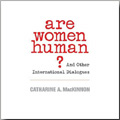 Edgamacation via Redstar at NYCweboy:
Edgamacation via Redstar at NYCweboy:
And now for the morning lecture: Female representation in politics. 13 years ago I did a stint with the Electoral Reform Society in the UK, and have since retained a love for proportional representation voting systems and information about increasing the ranks of women in office. This asinine comment thread over at Ezra Klein (his commentary on the Clinton campaign really undermines the rest of his work these days), got me thinking that the 'sphere needed some edgamacating about the proportion of women in higher office, especially here in the U.S. compared to the rest of the world.
We'll begin with Echidne's guest lecture on quotas:
a second concept of equality is gaining increasing relevance and support: the notion of "equality of result". The argument is that real equal opportunity does not exist just because formal barriers are removed. Direct discrimination and a complex pattern of hidden barriers prevent women from getting their share of political influence. Quotas and other forms of positive measures are thus a means towards equality of result. The argument is based on the experience that equality as a goal cannot be reached by formal equal treatment as a means. If barriers exist, it is argued, compensatory measures must be introduced as a means to reach equality of result. From this perspective, quotas are not discrimination (against men), but compensation for structural barriers that women meet in the electoral process.
She quotes the head of the Inter-Parliamentary Union, a 100+ year old kick ass organization in Geneva that studies electoral systems and women's political representation, as saying that all the top countries for women's leadership have some sort of quota system. (I used to have a fabulous IPU map in my NYC apartment that color-coded women's representation around the globe. It was a big hit at parties.)
Currently, the U.S. is ranked 70th of about 140 countries. Women comprise 17% and 16% of elected officials in the House and Senate, respectively. Countries that are kicking our ass in electing women to higher office include Rwanda (#1; 49% in its lower chamber and 35% in the upper chamber), all the Scandinavian countries, a notable portion of African and European countries, and Iraq (26% in its lower chamber).
Anyone who tells me that I should be satisfied with the elections of Thatcher (Uk #59) or Bhutto (Pakistan #43) as historically significant - and thus electing Senator Hillary Clinton for President is historically irrelevant - might keep in mind that just because public housing in the U.S. is more secure housing than shantytowns in Kenya does not make relative inequality (and poverty) in the U.S. less critical. We have our own work to do at home on improving gender, ethno-racial and economic equity, particularly given the notion that we are the land of the free and the land of opportunity. Right now that's a pretty narrow political pipeline for the majority of our country's population to squeeze through. Perhaps we can invite some wonks and officials from Mozambique (#12) and Honduras (#38) to show us how to increase women's political leadership. (Hint: see the above link for proportional representation.)
That concludes this Friday's lecture on women in politics in the U.S. and abroad. Sen. Clinton on The Tonight Show last night had awesome harsh words for Bush's train wreck governance. Apparently, she's speaking for the masses, even if, because of her gender, she's unlikely to lead us into a brighter future, and more generally be denied full benefits for her service to our country.
Good times are not had by all.
My brain feels fuller but my heart is heavy at the state of our nation's backward lean against female politicians. America, a superman power.























|